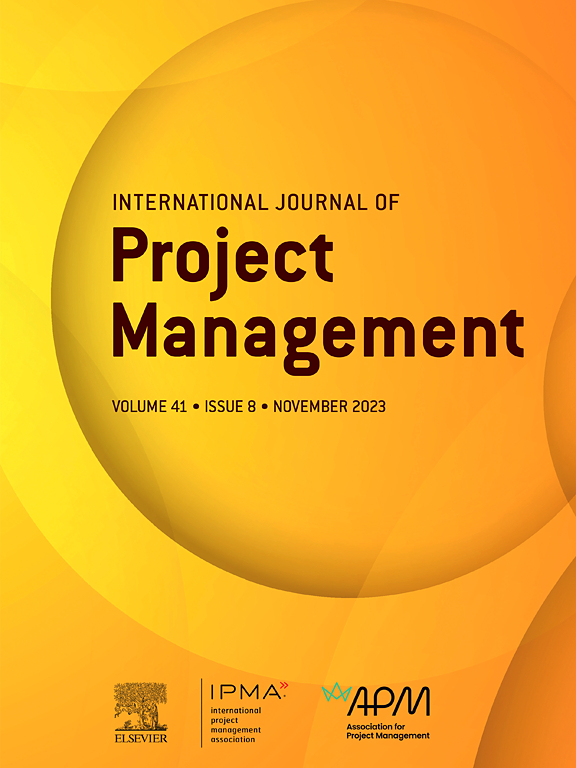Organic coordination in project design: Complemented or substituted by standardization?
IF 7.5
1区 管理学
Q1 MANAGEMENT
International Journal of Project Management
Pub Date : 2025-07-11
DOI:10.1016/j.ijproman.2025.102738
引用次数: 0
Abstract
While high levels of uncertainty and interdependence in project design demand organic coordination, the role of standardization remains ambiguous; limited evidence exists on whether it acts as a complement or a substitute, which complicates the effective configuration of coordination mechanisms to address these challenges. This study examines the relationship between standardization and organic coordination in the context of project design. A questionnaire survey was conducted with 311 respondents from 46 firms involved in Chinese building projects. The results show that the level of interdependence is positively related to the use of group meeting and interpersonal communication; the level of uncertainty is positively related to the use of group meeting only. Also, the use of boundary objects moderately reduces the marginal need for group meeting driven by interdependence. In contrast, the adoption of digital information systems increases the demand for both interpersonal communication and group meeting to manage uncertainty. This study contributes to the project management literature by revealing that the complementary or substitutive relationship between organic coordination and standardization is contingent upon the levels of interdependence, uncertainty, and the specific standardization methods applied. It also offers managerial insights for appropriately configuring these coordination mechanisms in project design.
项目设计中的有机协调:标准化是补充还是替代?
虽然项目设计中的高度不确定性和相互依赖性要求有机协调,但标准化的作用仍然不明确;关于它是作为补充还是替代的证据有限,这使得有效配置协调机制以应对这些挑战变得复杂。本研究探讨专案设计中标准化与有机协调的关系。对参与中国建筑项目的46家公司的311名受访者进行了问卷调查。结果表明:学生的相互依赖程度与小组会议的使用和人际沟通呈正相关;不确定性水平仅与小组会议的使用呈正相关。此外,边界对象的使用适度地减少了由相互依赖驱动的小组会议的边际需求。相比之下,数字信息系统的采用增加了对人际沟通和小组会议的需求,以管理不确定性。本研究通过揭示有机协调和标准化之间的互补或替代关系取决于相互依赖、不确定性和所采用的具体标准化方法的水平,对项目管理文献做出了贡献。它还提供了在项目设计中适当配置这些协调机制的管理见解。
本文章由计算机程序翻译,如有差异,请以英文原文为准。
求助全文
约1分钟内获得全文
求助全文
来源期刊

International Journal of Project Management
MANAGEMENT-
CiteScore
12.30
自引率
26.20%
发文量
83
审稿时长
59 days
期刊介绍:
The International Journal of Project Management is recognized as a premier publication in the field of project management and organization studies. Our main objective is to contribute to the advancement of project management and project organizing through the publication of groundbreaking research.
We are dedicated to presenting fresh insights and new knowledge in various domains, including project management, program management, portfolio management, project-oriented organizations, project networks, and project-oriented societies. We actively encourage submissions that explore project management and organizing from the perspectives of organizational behavior, strategy, supply chain management, technology, change management, innovation, and sustainability.
By publishing high-quality research articles and reviews, we strive to revolutionize the academic landscape and propel the field of project management forward. We invite researchers, scholars, and practitioners to contribute to our journal and be a part of the progressive development in this exciting field.
 求助内容:
求助内容: 应助结果提醒方式:
应助结果提醒方式:


